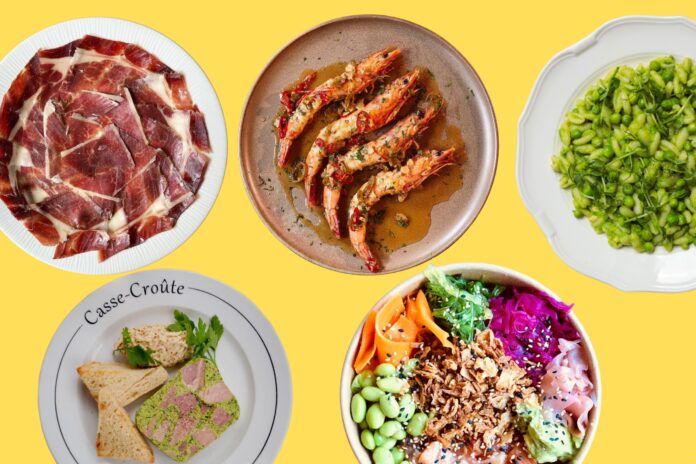As the environmental and ethical implications of fast fashion become increasingly apparent, a paradigm shift in consumer behaviour is emerging. This shift is characterised by a move towards more sustainable shopping habits, materials, and brands that offer a welcome antidote to the disposable culture of fast fashion.
Indeed, the allure of cheap, trendy clothing that can be bought at a moment’s notice has been overshadowed by the pressing need for sustainability and ethical responsibility. As we become more aware of the impact our shopping habits have on the planet, the question arises: what are the antidotes to fast fashion?
Mindful Shopping Habits
The first step towards sustainable fashion is changing our shopping habits. Mindful shopping means taking a moment to consider the necessity and longevity of a purchase. It’s about moving away from impulsive buying and towards a more thoughtful approach to consumption.
Quality Over Quantity
Investing in high-quality garments that last longer is a welcome change. This means looking for well-made clothes, with attention to detail and durable materials. It’s about having a classic wardrobe that transcends seasonal trends, reducing the need to constantly buy new items.
Second-Hand and Vintage
The second-hand market is booming, and for good reason. Buying vintage or pre-loved items not only gives clothes a second life but also reduces the demand for new production. Charity shops, vintage boutiques, and online platforms like Depop and Vinted are treasure troves for unique finds that don’t cost the earth.
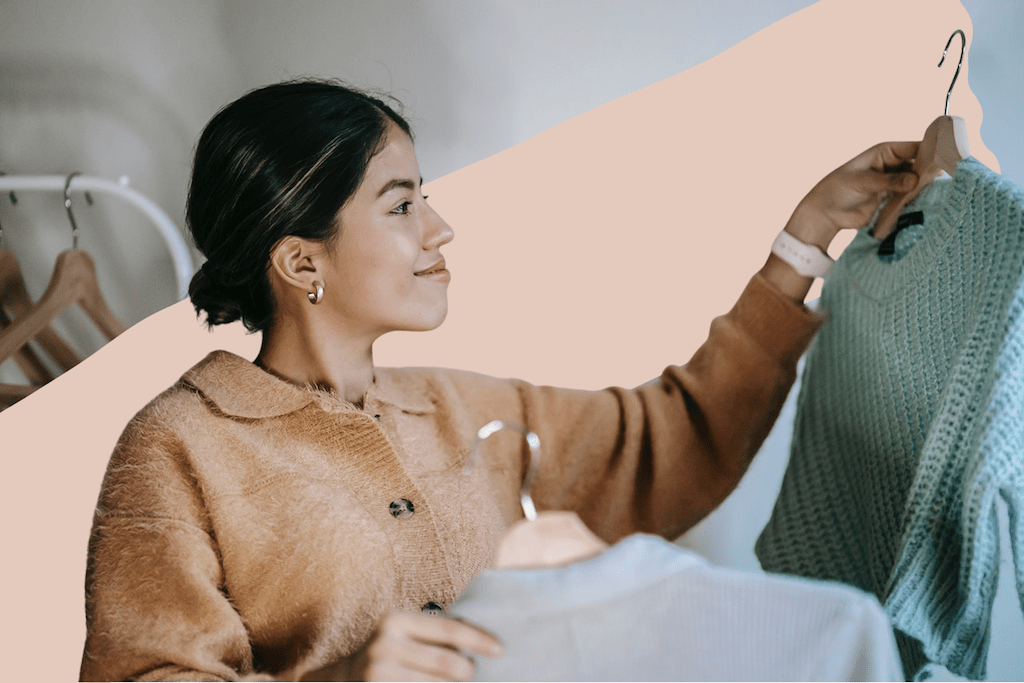
Renting, Swapping & Repurposing
For those occasions that require a special outfit, renting rather than buying is a sustainable choice. Similarly, clothes swapping with friends or through organised events can refresh your wardrobe without contributing to fast fashion.
Here are some of the most popular clothes rental platforms in the UK:
- HURR Collective – This platform is well-known for its peer-to-peer rental service, allowing users to rent out their own clothes as well as rent from others.
- By Rotation – By Rotation markets itself as a social fashion rental app, where users can lend and rent designer outfits directly from each other.
- My Wardrobe HQ – This site offers both rental and purchase options for designer clothes and accessories, with a focus on luxury fashion.
- Rotaro – Rotaro is a fashion rental service that curates trendy pieces and also focuses on sustainability by offering carbon-neutral deliveries.
- Hirestreet – Hirestreet is aimed at the affordable end of the market, offering rental dresses and outfits for events like weddings, parties, and other special occasions.
- Girl Meets Dress – This is one of the UK’s first dress rental services, offering a wide range of dresses for various occasions.
- Endless Wardrobe – They offer a three-way service: rent, buy new, or buy nearly-new, giving customers multiple options for accessing contemporary fashion.
- The Devout – This is a subscription-based rental service offering everyday clothing as well as occasion wear.
- Front Row – Front Row is a luxury-focused rental service offering pieces from high-end designer labels.
Breathing new life into existing garments through repurposing is another brilliant way to extend the lifecycle of your clothes. As the printing experts at MeowPrint.sg tell us, old t-shirts can be transformed with screen printing or block printing techniques, whilst iron-on or hand-sewn patches can cover worn areas whilst adding personality.
Even basic sewing skills can help reimagine tired pieces – try adding embroidered details, turning long-sleeved tops into summer versions, or incorporating contrasting fabric panels to create unique designs. These creative touches not only revitalise your wardrobe but also create one-of-a-kind pieces that reflect your personal style.
Capsule Wardrobes
Embracing the concept of a capsule wardrobe involves curating a limited selection of versatile pieces – the most versatile of linen dresses, a white t-shirt that goes with everything, a simple pair of jeans, for instance – that can be mixed and matched to create a variety of outfits. This approach encourages less consumption and more creativity with fewer items.
Read: The only 10 items you’ll ever need for the IDEAL minimalist wardrobe
Digital Detoxing from Fast Fashion
Reducing exposure to fast fashion advertising can help curb the temptation to buy impulsively. Unfollowing brands that promote fast fashion and subscribing to newsletters from sustainable brands can help realign shopping habits with personal values.
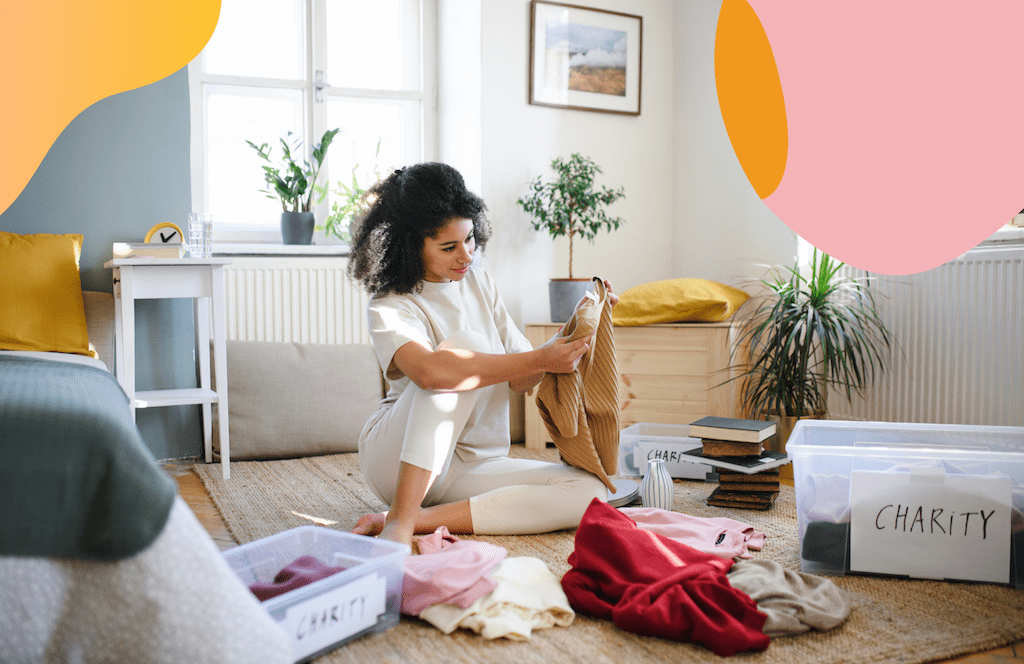
Sustainable Materials
The materials our clothes are made from have a significant impact on the environment. Sustainable materials are those that require less water, energy, and chemicals to produce, and have a lower overall environmental impact.
Organic Cotton
Organic cotton is grown without harmful pesticides and chemicals, making it a more eco-friendly alternative to conventional cotton. It also tends to be softer and may last longer with proper care.
Linen
Linen is a sustainable choice, derived from the flax plant, which requires minimal water and energy to produce. This natural fibre is known for its durability, which leads to a longer lifespan of linen clothes, reducing the need for frequent replacements. Fully biodegradable when untreated, linen is kind to the earth at every stage of its life cycle. When opting for linen, seek out organic certifications to ensure it’s free from harmful chemicals and check for fair working conditions within its production chain. This ensures that your linen choices are as ethical as they are environmentally sound.
Recycled Fabrics
Recycled polyester and nylon, made from post-consumer waste like plastic bottles, are increasingly popular. These materials help to reduce plastic waste and often require less energy to produce than virgin fibres.
Plant-Based Alternatives
Innovative materials like Tencel, made from wood pulp, and Piñatex, made from pineapple leaves, are renewable and biodegradable. They offer a sustainable alternative to traditional fabrics and are gaining traction in the fashion industry.
Hemp
Hemp is a highly sustainable crop that grows quickly, requires little water, and doesn’t need pesticides. It produces a fibre that is durable, breathable, and biodegradable, making it an excellent choice for eco-conscious clothing.
Wool
Ethically sourced wool represents a natural, renewable fibre that is both durable and biodegradable. When sourced from farms that practise sustainable grazing and animal welfare, wool can be a responsible choice for clothing.
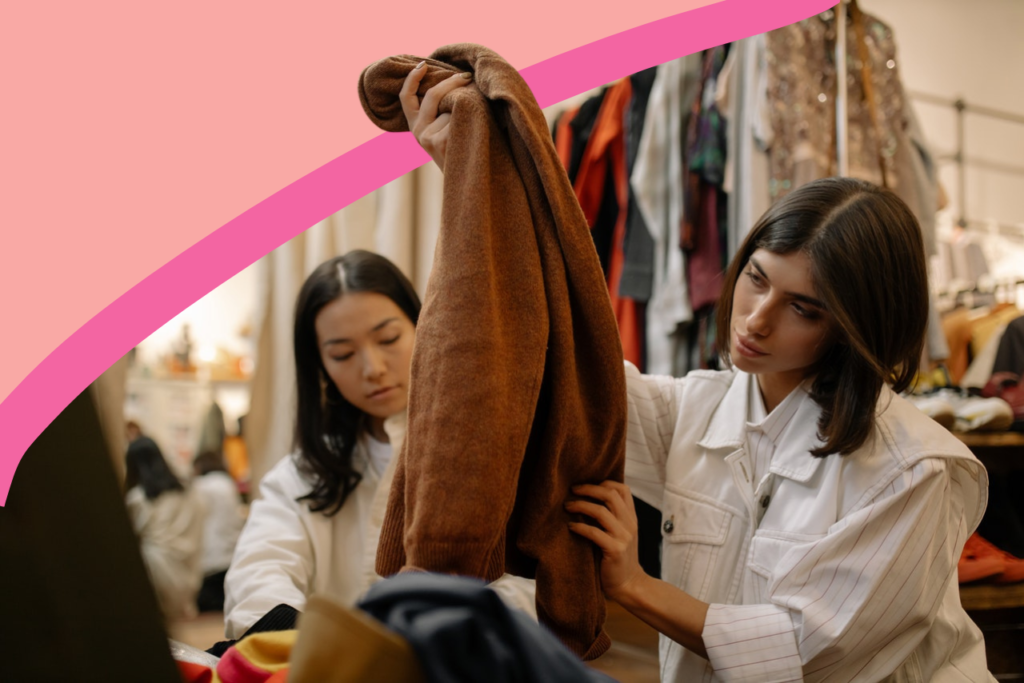
Evaluating Brand Sustainability
Want to do your due diligence on which brands might be truer to their word on sustainability than others? Here’s how…
Transparency
A sustainable brand should be transparent about its manufacturing processes, supply chains, and business practices. Look for companies that provide detailed information about their factories, workers’ conditions, and the origins of their materials. Brands that are part of initiatives like the Fashion Transparency Index are often more open about their operations.
Certifications and Standards
Certifications can be a reliable indicator of a brand’s commitment to sustainability. Look for certifications such as Fair Trade, Global Organic Textile Standard (GOTS), OEKO-TEX, and B Corp, which ensure certain environmental and ethical standards are met.
Sustainable Packaging
Sustainable brands often use minimal packaging made from recycled or biodegradable materials. If a company is going the extra mile to reduce its packaging waste, it’s a good sign they are serious about their environmental impact.
Lifecycle Approach
Check if the brand takes responsibility for the entire lifecycle of its products. Brands that offer repair services, take-back programs, or recycling initiatives show a commitment to reducing waste and extending the life of their garments.
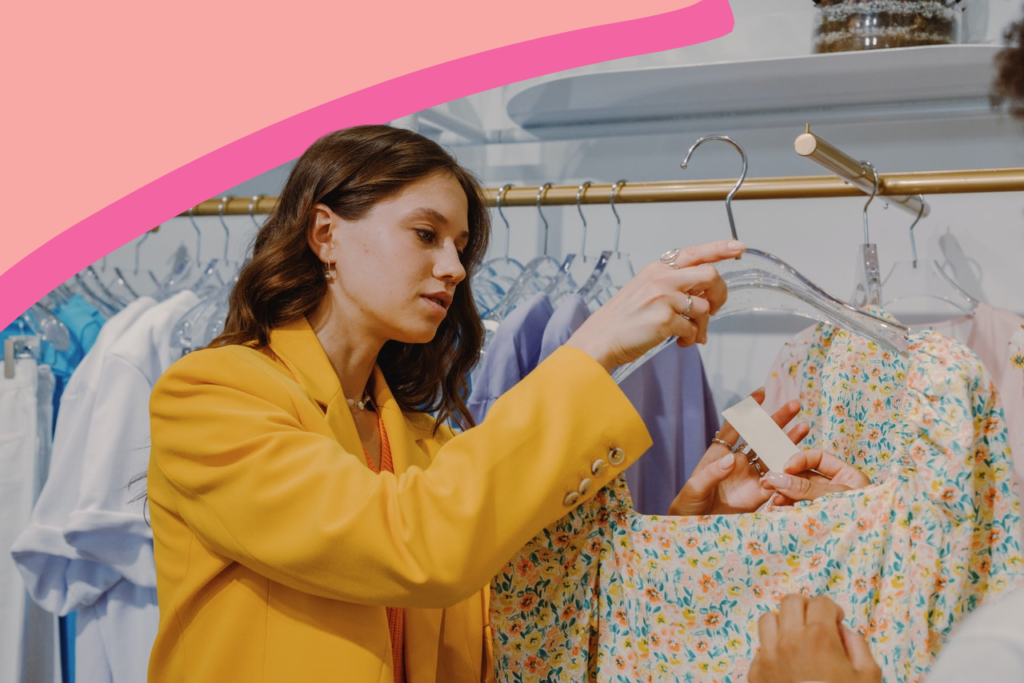
Initiatives To Support In The Fashion Industry
There’s plenty of good work going on, aimed at improving the eco-consciousness and ethical heart of the fashion industry. Here are a handful of initiatives well worth supporting…
Fashion Revolution
Fashion Revolution – and its aforementioned Fashion Transparency Index – is a global movement calling for greater transparency, sustainability, and ethics in the fashion industry. By supporting this initiative, consumers can help push for a systemic change in the way our clothes are sourced, produced, and consumed.
The Sustainable Apparel Coalition
The Sustainable Apparel Coalition (SAC) is an industry-wide group that includes brands, retailers, and manufacturers working to reduce the environmental and social impacts of apparel and footwear products. The SAC developed the Higg Index, a suite of tools that enables brands to measure their sustainability performance.
The Ellen MacArthur Foundation’s Circular Economy
The Ellen MacArthur Foundation promotes the transition to a circular economy, which aims to design out waste and pollution, keep products and materials in use, and regenerate natural systems. Their work in the fashion sector encourages brands to adopt circular business models.
1% for the Planet
1% for the Planet is a global network of businesses, nonprofits, and individuals working together for a healthy planet. Brands that are members commit to giving 1% of their annual sales to environmental causes.
The Clean Clothes Campaign
The Clean Clothes Campaign is an alliance dedicated to improving working conditions and empowering workers in the global garment and sportswear industries. By supporting this initiative, consumers can contribute to the fight for fair wages and safe working conditions for garment workers.
The Bottom Line
The antidote to fast fashion is a combination of mindful shopping habits, sustainable materials, and support for ethical brands. By making conscious choices about what we buy, who we buy from, and, ultimately, how we stock our wardrobe, we can reduce our environmental impact and encourage a more sustainable fashion industry. It’s not just about looking good; it’s about feeling good, knowing that our fashion choices are helping to make a positive change in the world.

